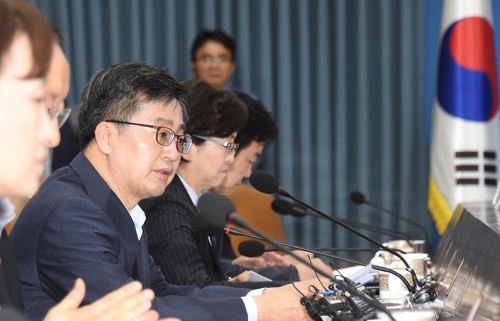
According to Yonhap News,
(SEOUL=Yonhap News) South Korea will seek drastic deregulation and provide support to foster innovative growth, the country's finance ministry said Friday.
Under a set of support measures unveiled earlier, the government will provide funding and other incentives to eight key sectors such as smart farms, smart cities, financial technology, drones and electric vehicles and artificial intelligence.
"The government will accelerate its move toward easing regulations for innovative growth ... and will fully support innovative growth by companies and the market," Finance Minister Kim Dong-yeon said in an economy-related ministers meeting.
Earlier the government said it would focus on expanding financial support for fledgling enterprises and creating a venture-friendly environment. The minister said the government is aiming to help create over 100,000 startups this year through fiscal support and investment funds.
Kim said earlier that South Korea's economy needs critical growth momentum to mount a sustainable expansion going forward and stressed that innovative growth is crucial in that context.
Innovative growth is one of key economic goals sought after by the Moon Jae-in government, along with income-led growth.
As to the drop in income in the low-income bracket, the finance minister said the government is working on a variety of measures to help level up their income and expand the social safety net for them.
The average household earned 4.76 million won (US$4,400) per month in the January-March period, jumping 3.7 percent from a year earlier, according to Statistics Korea. The on-year growth is the quickest since the first quarter of 2014, when the figure was 5 percent.
The monthly average income for those in the bottom 20 percent income bracket, however, dropped 8 percent on-year to 1.28 million won, the sharpest drop since 2003, when such data began to be compiled. In contrast, households in the upper 20 percent income range earned 10 million won during the first quarter, up 9.3 percent from a year earlier.
Kim said earlier the government may consider next year's budget and tax policy to tackle the matter.
"The government thinks that it is a grave concern and tailored policies will be rolled out, while more job-creating measures will be taken," the policymaker added.
sam@yna.co.kr
Copyrights Yonhap News. All Rights Reserved.
Reprint or redistribution without permission is prohibited.
** This article was translated from Korean.
Source: Yonhap News (June 08, 2018)










